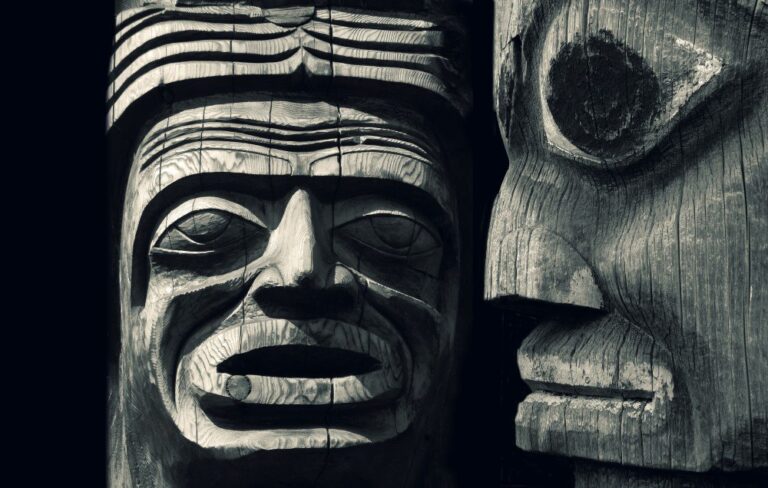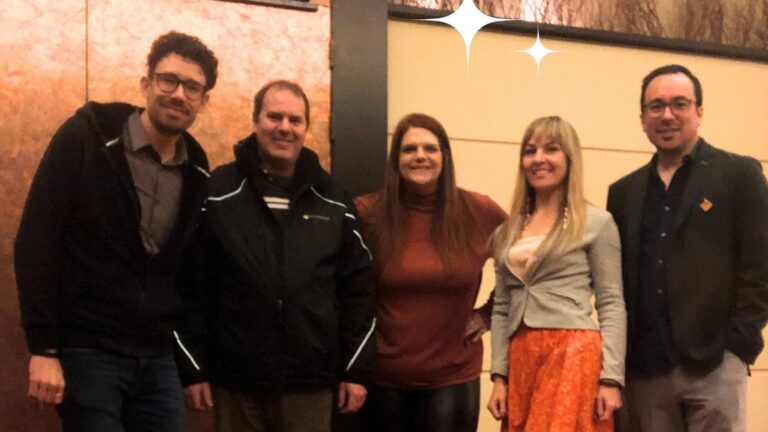Embark on a literary journey that honours the rich tapestry of Indigenous narratives with our top picks for the best Indigenous books. These works not only weave incredible stories but also offer a window into the diverse cultures, histories, and perspectives of Indigenous peoples.
By choosing to read these books, you contribute to amplifying Indigenous voices and supporting their communities.
1. “Calling My Spirit Back” by Elaine Alec

“Calling My Spirit Back” is a remarkable piece of Canadian literature that resonates deeply with our current national discourse on systemic racism, the mistreatment of women, and the profound, ongoing trauma faced by First Nations people. In this book, the Indigenous author, Elaine Alec, offers a profound contribution to these conversations through her vivid storytelling and a unique approach to healing. With striking honesty and precision, Alec takes readers on a personal journey, connecting it seamlessly to broader national sociological issues. She doesn’t shy away from exposing her own vulnerabilities and challenges, making her candour both rare and vivid. Moreover, the book provides tangible steps towards creating spaces for diversity and inclusion rooted in Indigenous knowledge and teachings.
“Calling My Spirit Back” is a moving testament to the power of personal narratives in addressing complex social concerns, and it’s a must-read for anyone seeking insight, empathy, and the path to reconciliation.
Read Calling My Spirit Back: Amazon
2. “Truth Telling” by Michelle Good

“Truth Telling” is a bold and provocative exploration of Canadian Indigenous issues by Michelle Good, an advocate, activist, and award-winning novelist. In this collection of essays, Good delves into the contemporary Indigenous experience in Canada, addressing a wide range of topics from resistance and reconciliation to the resurgence and reclamation of Indigenous power. Through personal essays, she offers a powerful and insightful examination of these critical issues, shedding light on the complex realities of Indigenous life in Canada. The collection includes an expanded and updated version of her highly acclaimed Globe and Mail article on “pretendians,” as well as the thought-provoking “A History of Violence,” an essay featured in a book about missing and murdered Indigenous women. Good also explores themes such as discrimination against Indigenous children, the essence of meaningful reconciliation, and the pivotal role of the Indigenous literary renaissance of the 1970s.
With authority and intelligence, Michelle Good lays bare the human cost of colonialism, showcasing its enduring impact on Canadian social institutions and emphasizing the urgent need for meaningful and substantive change. “Truth Telling” is an essential read that offers profound insights into the Indigenous experience in Canada, encouraging a deeper understanding and sparking crucial conversations about the path forward.
Read Truth Telling: Shop First Nations | Amazon
3. “Indian Horse” by Richard Wagamese

Saul Indian Horse’s story is one of resilience and survival. As readers, we’re invited to trace his journey as a northern Ojibway, from the depths of personal despair to the discovery of peace through the power of storytelling. Richard Wagamese’s novel reveals the resilience of the human spirit amidst the challenges of 1960s Canada, including the painful legacy of residential schools. Saul’s salvation, found through his extraordinary talent in hockey, is a testament to the enduring strength of cultural identity and the importance of reconciliation.
“Indian Horse” lays bare the beauty and the hardships of Indigenous life, resonating with truth and empathy, making it an essential read for anyone seeking to understand and honor Indigenous experiences
Read Indian Horse: Shop First Nations | Amazon
4. “Indigenous Social Media Calendar” by Shop First Nations

The “Indigenous Social Media Calendar” is your indispensable guide to commemorating Indigenous culture and maintaining a vibrant online presence. Packed with historical dates, Indigenous holiday information, hashtag suggestions, and post ideas, it ensures you never miss an opportunity to connect with your followers. By utilizing this resource, you can not only stay in touch with your community but also showcase your brand’s commitment to Indigenous culture, attracting new customers who share your values. Don’t let social media fall by the wayside in your business; get the calendar today and start engaging with your audience in a meaningful way.
Buy an Indigenous Social Media Calendar: Shop First Nations
5. “From Where I Stand: Rebuilding Indigenous Nations for a Stronger Canada” by Jody Wilson-Raybould

“From Where I Stand” is a profoundly impactful book by the esteemed Jody Wilson-Raybould, a prominent Indigenous leader and former Attorney General of Canada. In this exceptional work, Wilson-Raybould draws upon her profound understanding of Indigenous issues to present a compelling vision for the revitalization of Indigenous nations in Canada. Combining personal narratives, historical insights, and policy recommendations, she outlines a path for Indigenous communities to transcend the legacy of colonialism and foster resilient, self-determined societies. She underscores that genuine reconciliation necessitates not only acknowledgment of past injustices but also concrete actions to rectify ongoing disparities and empower Indigenous peoples.
A must-read for those passionate about Indigenous issues, Canadian politics, and the ongoing quest for justice and equality, “From Where I Stand” showcases Wilson-Raybould’s powerful voice and distinctive perspective, making it a ground-breaking work that promises to captivate and challenge its readers.
Read From Where I Stand: Shop First Nations | Amazon
6. “Rez Rules: My Indictment of Canada’s and America’s Systemic Racism Against Indigenous Peoples by Chief Clarance Louie

“Rez Rules” offers an inspiring journey into the remarkable life of Clarence Louie, who, at the tender age of twenty-four, was elected Chief of the Osoyoos Indian Band in the Okanagan Valley—a role he has successfully held for nearly four decades. His story is synonymous with the transformation of the Osoyoos Indian Band, often referred to as “The Miracle in the Desert.” From a community grappling with poverty to becoming a beacon of economic independence, Louie’s narrative is well-documented. Rooted in his formative years growing up on the Rez, Chief Louie underscores the pivotal role of economic and business independence in achieving self-sufficiency, reconciliation, and justice for First Nations people.
Chief Louie delves into his youth in Osoyoos, recounting early mornings toiling in the vineyards, participation in sports, and his experiences in a predominantly white school in Oliver, B.C. He vividly recalls enrolling in the “Native American Studies” program at the Saskatchewan Indian Federated College in 1979, a pivotal moment that ignited his passion for First Nations history, particularly the historic significance of treaties. From his earliest involvement in activism, including a cross-country treaty bundle run, Chief Louie embarked on a transformative journey of leadership, along with his band’s relentless efforts to achieve economic growth and record levels of employment.
Guided by the enduring work ethic of his ancestors and the aspiration of the young people on the reserve, Chief Louie remains dedicated to advancing First Nations’ self-sufficiency and independence. This book is a compelling account of Chief Louie’s remarkable journey and his unwavering commitment to the prosperity of First Nations communities.
Read Rez Rules: Amazon
7. “Indigenomics: Taking a Seat at the Economic Table” by Carol Anne Hilton

“Indigenomics” is among the best Indigenous books that emphasize the importance of elevating the modern Indigenous economy. It explores key themes like power shifts within Indigenous communities and the rise of a robust Indigenous economy, featuring insights from leading Indigenous business leaders. The book challenges misconceptions about Indigenous dependency and showcases real-world examples of economic empowerment. “Indigenomics” calls for a new model of development rooted in self-determination and collective well-being, making it essential reading for business leaders, Indigenous organizations, governments, and policymakers.
Winner of the 2022 First Nations Community Reads Awards, it’s a must-read for those seeking to understand and advance the Indigenous economy.
Read Indigenomics: Shop First Nations | Amazon | New Society Publishers
8. Decolonize First by Ta7talíya Michelle Nahanee

“Decolonize First” is a liberating guide and workbook crafted by Ta7talíya Michelle Nahanee, offering a transformative tool to support your decolonization journey. Comprising 14 letter-size pages, this workbook is a rich resource of processes, prompts, and valuable links to aid you in navigating the complex terrain of decolonization. Ta7talíya’s guidance leads readers through both personal and systemic perspectives, encouraging a shift away from colonial defaults towards critical consciousness.
Drawing inspiration from her experience in hosting decolonizing dialogues using the giant Sínulkhay & Ladders board game, “Decolonize First” responds to the activated spirit and enthusiasm expressed by workshop participants who are eager to take further action. This workbook serves as a dedicated space for self-reflection and provides the essential tools for peeling back the layers of neocolonialism that affect us all. With its practical and thought-provoking approach, “Decolonize First” empowers individuals to initiate meaningful change and embrace the journey toward decolonization, offering a vital resource for those who seek to dismantle the impacts of colonialism in their lives and communities.
Read Decolonize First: Nahanee Creative
9. “Indigenous Relations: Insights, Tips & Suggestions to Make Reconciliation a Reality” by Bob Joseph

“Indigenous Relations” is not just one of the best Indigenous books; it’s a comprehensive guide that bridges the gap between knowledge and understanding, offering tools for respectful business and personal interactions with Indigenous Peoples. This companion to the best-selling “21 Things You May Not Know About the Indian Act” provides clarity on Aboriginal Rights and Title, the treaty process, and the significance of hereditary versus elected leadership. It challenges common myths, encourages the use of appropriate terms, and fosters an appreciation for Indigenous worldviews and cultural traditions.
As a roadmap to reconciliation, it’s a vital addition for anyone looking to engage with Indigenous communities in a meaningful and informed manner
Read Indigenous Relations: Amazon
10. “The North-West Is Our Mother: The Story of Louis Riel’s People, the Métis Nation” by Jean Teillet

“The North-West Is Our Mother” is a compelling narrative that fills a significant void in the history of Canada’s Indigenous peoples by chronicling the story of the Métis Nation. Jean Teillet’s vivid recounting brings to life the emergence of a distinct community, descended from both First Nations and Europeans, renowned for their military prowess and nomadic traditions. The book captures the essence of the Métis spirit—defiant, passionate, and resilient—as they fought for recognition and rights, led by the emblematic Louis Riel. It’s a journey through triumph and tribulation, from obscurity to a determined resurgence into the national consciousness, charting a path toward reconciliation.
This story, penned by Riel’s great-grandniece, is an essential read for all who seek to understand the continuous fight for Indigenous rights and the indelible mark the Métis Nation has left on Canada’s identity.
Read The North-West Is Our Mother: Amazon
11. “Spirit Bear” by Bill Helin

“Spirit Bear” is a beautifully illustrated story that is one of the best Indigenous books for children. Featuring a charming little spirit bear, it is written in lyrical prose that will captivate young readers. This heartwarming tale is just one of the many stories in the collection that emphasizes the profound belief that our stories are the very roots of our people, our lands, and our cultures.
Within these enchanting narratives, children can explore the diverse First Nation territories and the unique cultures and traditions that define them. The stories reveal the significance of storytelling in shaping our identities and our understanding of the world.
Consider adding “Spirit Bear” and the complete “Strong Stories: Tlingit” series to your child’s bookshelf. These tales offer endless delight for young readers, and you can take comfort in knowing that they are learning about the rich and diverse cultures that enrich our world. It’s a valuable addition to any library, where stories serve as bridges to understanding and appreciating the cultural tapestry that surrounds us.
Read Spirit Bear: Shop First Nations
12. “The Girl Who Loved the Birds” by Joseph Dandurand & Illustrated by Elinor Atkins

“The Girl Who Loved the Birds” is a heartwarming addition to the series of Kwantlen legends penned by the award-winning author, Joseph Dandurand, following “The Sasquatch, the Fire and the Cedar Baskets” and “A Magical Sturgeon.” Enhanced by the exquisite gouache illustrations by Kwantlen artist Elinor Atkins, this gentle children’s story introduces a young Kwantlen girl and her endearing connection with the island’s avian inhabitants. From gathering sticks and moss for nest builders to sharing meals with eagles and owls, the girl forges an enduring bond with her feathered companions, leading to a beautiful cycle of kindness.
Joseph Dandurand’s signature simplicity and grace shine through in “The Girl Who Loved the Birds,” making it a captivating tale of kinship and connection. This book is a delightful addition to any library, offering a glimpse into the beauty of nature and the harmony of relationships that transcend human boundaries.
Read The Girl Who Loved the Birds: Amazon
Final Word About the Best Indigenous Books
Celebrating Indigenous authors is not just about reading; it’s about recognizing and respecting the depth of Indigenous cultures and experiences. Each book on our list is a pathway to understanding, an invitation to dialogue, and an opportunity to support Indigenous entrepreneurs and creators. By choosing to delve into these narratives, you join us in a movement that values stories as bridges between diverse worlds.
Thank you for joining us on this literary adventure and for supporting Indigenous voices and authors. Together, we can make a positive impact and promote Indigenous reconciliation through the power of storytelling.
Visit Shop First Nations to explore the best Indigenous books. Every purchase is a step toward a more inclusive and empathetic world, one story at a time.
Huy ch q’u – Maarsii – Miigwech – Thank you.



